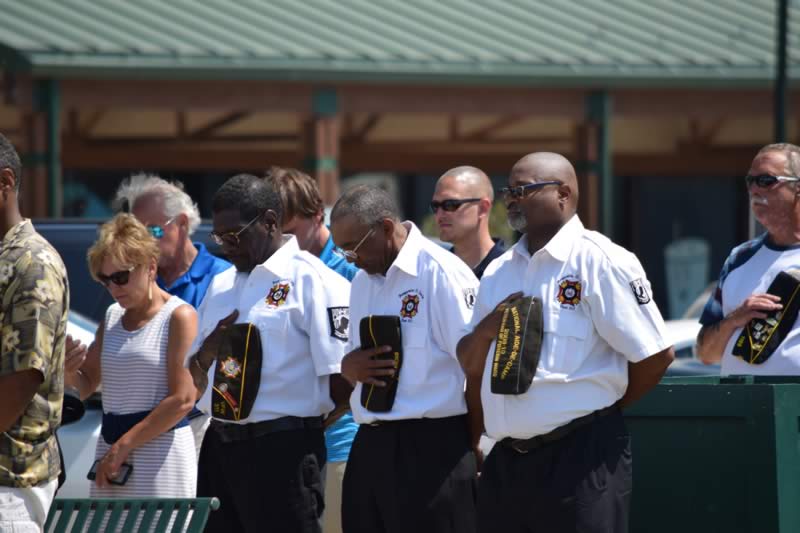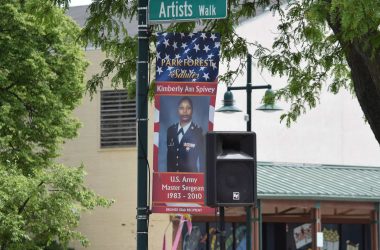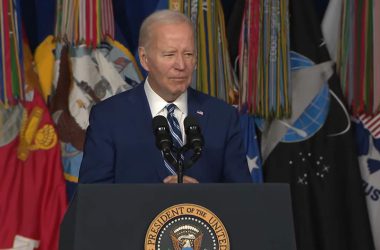Kirk: Reconsidering Benefit of Aid to Pakistan
CHICAGO—(ENEWSPF)—September 6 2011. Following his third two-week assignment in Afghanistan, Naval Reserve Intelligence Commander, Senator Mark Kirk (R-Ill.) today delivered a speech offering a first-hand account of the challenges America and its NATO allies face in Afghanistan as the U.S. continues to stabilize this critical region. In the speech, Sen. Kirk outlines policy proposals regarding the withdrawl of American combat troops and the need to review how aid to Pakistan has served American interests.
The full text of Sen. Kirk’s speech can be read below:
Afghanistan Views and Why We Should Rethink Aid to Pakistan
Senator Mark Kirk of Illinois
September 6, 2011
I just completed my third two-week reserve assignment in Afghanistan. While many members of Congress get a first-hand look on fact-finding missions, my time provided a more in-depth view, with a focus on the counter-narcotics objectives of NATO’s ISAF mission.
First, the good news.
The work of our soldiers, marines, sailors and airmen is nothing short of amazing. Serving in one of the poorest, roughest and most remote parts of the globe,they crushed Al Qaeda’s base, drove the Taliban from government, fostered a new elected government, and welded 47 allies into a force for human rights, development, and education – especially for girls.
Forty-two percent of Afghans live on less than a dollar a day. About one in four can read. Malnutrition is a serious problem and infant mortality is the second highest of any country. According to the United Nations, nearly 40% of children under three are moderately or severely underweight, and more than 50% of children under three experience stunted growth. Afghanistan has more than twice Illinois’ population, but its electricity generation for an entire year is less than 2% of the electricity that Illinois generated in just the month of May.
The nearly thirty million people of Afghanistan are victimized by a number of terrorist groups beyond just the Taliban, like the HIG, ETIM and a new threat, the Haqqanis, who I will discuss in detail.
But Afghans are most victimized by their neighbors, the Pakistanis. I first served as a reservist in Afghanistan in 2008. I believed that Pakistan was “complicated,” that “we have many interests there” and that we must advance “diplomatically.” I no longer agree with that.
Pakistan has become the main threat to Afghanistan. Pakistan’s intelligence service is the biggest danger to the Afghan government. It is also a tremendous threat to the lives of American troops. Let me be clear: many Americans died in Afghanistan because of Pakistan’s ISI.
Sitting in our commander’s briefs for two weeks, talking to our Headquarters’ leaders and spending a few days in the field, it became clear to me that if we worked in Afghanistan alone, we would quickly turn the country around, restoring it to its status as an agricultural economy with a loose government and high degree of autonomy given to each tribe and region.
But we are not alone.
While our military reduced Al Qaeda in Afghanistan to a shadow of its former shadow, a new force is emerging. On the 10th anniversary of 9/11, Al Qaeda isstill armed and dangerous but far less numerous or capable than it was then. But Al Qaeda is not the most potent force arrayed against us.
The new face of terror is called the Haqqani network. Built around its founder, Mawlawi Jalaluddin Haqqani, and his son, Siraj Haqqani, it has become the most dangerous, lethal and cancerous force in Afghanistan.
One other thing.
As much as the Pakistani officials claim otherwise, the Haqqanis are backed and protected by Pakistan’s own intelligence service. Statements by Pakistani government officials to the contrary are direct lies.
The Haqqani network kills Americans, attacks the elected government of Afghanistan and remains protected in its Pakistani headquarters of Miriam Shah. Without that Pakistani safe haven, it would suffer the same fate as Al Qaeda. Afghan and U.S. Special Operations teams take out many Talibancommanders and operators each night but numerous key Haqqani leaders spend all day planning attacks on Americans in Afghanistan — then sleep soundly in their beds in Pakistan.
In such an environment, and with our deficits and debt, aid to Pakistan seems naive at best and counter-productive at worst. I am seriously reconsidering and rethinking how well aid to Pakistan served us.
Recently, our President chose to pull out 33,000 troops from the Afghan battle. General Petraeus and Admiral Mullen did not choose thisoption. Nevertheless, I think our new commander, General Allen, can withdraw the first American 10,000 troops by Christmas without a military reversal in Afghanistan. Afghanistan’s army and police are growing in size (now over 300,000) and capability. Despite recent reports of desertions, Afghanistan’s security forces will soon reach a level were some of our troops can safely leave the country. As we withdraw, we should consider a pay raise forAfghan troops to improve their retention and morale.
I spoke with General Allen about a “Commander’s Assessment” at the end of this year. After withdrawing 10,000 troops, I hope he will clearly define when the next 23,000 can come out. In the U.S., politically there is littledifference between withdrawing the next 23,000 by the “end of the fiscal year” or “end of the year.”
Militarily, there is a world of difference.
The “Fighting Season” of Afghanistan runs through October. If Allen withdraws his troops by September 30th, many of his forces will disappear during the Taliban’s key offensive months. But if the troops leave in November/December, then we guarantee another bad year for the Taliban and Haqqanis and an even stronger Afghan army for the long term.
I hope the President sets an “end-of-year” deadline rather than an “end-of-fiscal-year” term. It’s the right thing to do militarily and politically. If he does this, he reduces the chance of radical Islamic extremists winning some key battles during 2012.
While in Afghanistan, I helped update and rewrite ISAF’s counter-narcotics plan. Afghanistan is the source of over 80% of the world’s heroin andopium. The drug economy fuels the insurgency and corruption of the Afghan government. From 2001 to 2009, Secretary Rumsfeld and then AmbassadorHolbrooke blocked ISAF from doing much about narcotics. This left a huge funding source of the insurgency untouched.
ISAF spent 2009 and 2010 “supporting” interdiction, eradication and alternative livelihoods for Afghan farmers. While commendable, it didn’t work and the size of the Afghan poppy crop is likely to go up.
The plan I worked on advocates a shift of ISAF to apply its military strengths of intelligence, helicopters and Special Operations to support Afghan operations to arrest the top drug lords, starting with the ones who financially back the insurgency. We joined together in 2005 to arrest “Bin Laden’s Banker”, Haji Bashir Noorzai, we should do it again.
I strongly backed an Afghan Counter-Narcotics Ministry idea to announce a “top ten” Drug Lord List to emulate the early success of J. Edgar Hoover when he established the reputation of the FBI. In our remaining two years in Afghanistan, we can do a lot to cripple the insurgency and help the 2014 elections by removing key, bad actors from the battlefield.
What about the future?
The President says that our formal, current mission will end in 2014. Much of his vision will be approved at the Chicago NATO summit in May. By 2014, I believe Afghans will be able to do nearly all of the conventional frontline fighting – with some Special Operations support remaining.
But remember, while the Afghan army is likely to win, its budget for this year is over $11 billion. The Afghan government collected only $1 billion in taxes in 2010. We will have to help. Without U.S. regular combat troops, we risk the Taliban/Haqqani/ISI alliance of terror winning.
On the Tenth Anniversary of 9/11, we should all agree that Afghanistan should never be a major threat to America again.
Should Pakistan not change its ways, we can also do one other thing: an American tilt towards India to encourage the world’s largest democracy to bankroll an Afghan government that fights terror and the ISI.
Given the lying and duplicity of Pakistan, it appears that a tilt towards India will allow us to reduce our forces in Afghanistan, knowing that India will help bankroll the Afghan government. This would allow us to reduce our troops while also reducing the possibility of it becoming another terrorist safe haven.
Pakistanis would object to this “pro-Indian” outcome. They will only have their own ISI to blame. September 11th teaches us that neither the United States nor India can tolerate a new, formal Afghan terror state. It’s too bad Pakistan looks like it has chosen to back the losing side, Afghan terrorists, against the Afghan people and the two largest democracies on earth.
Finally, a word about our troops.
Each night, they combat the most dangerous, narco-insurgents on earth. Many 19 and 20-year-old Americans volunteered to serve over 7,000 miles from home. Their generation is named after 9/11 …but these Americans in uniform not only carry their generation’s label, they personally employ it by risking their lives to ensure all Americans will never suffer through another 9/11.
They are America’s best and I hope to God when I am older, some of them run for President. From my nursing home, I will know the country is in good hands if these young heroes guide our nation’s destiny.
I am lucky to know many of their names – Major Fred Tanner (Army), LTC Doug McCobb (Air Force), MG Mick Nicholson (Army) and our allies – Wing Commander Howard Marsh (Royal Air Force), Gen. Gilles Martin (French Army), Rear Admiral Tony Johnstone-Brute (Royal Navy) and Col. Robin Vickers (British Army). I honor them and their younger comrades — wishing all military personnel of ISAF’s 49 nations a very good day as they wake up in Afghanistan for another day’s work on one of the toughest battlefields in the world.
Thank you.
Source: kirk.senate.gov








